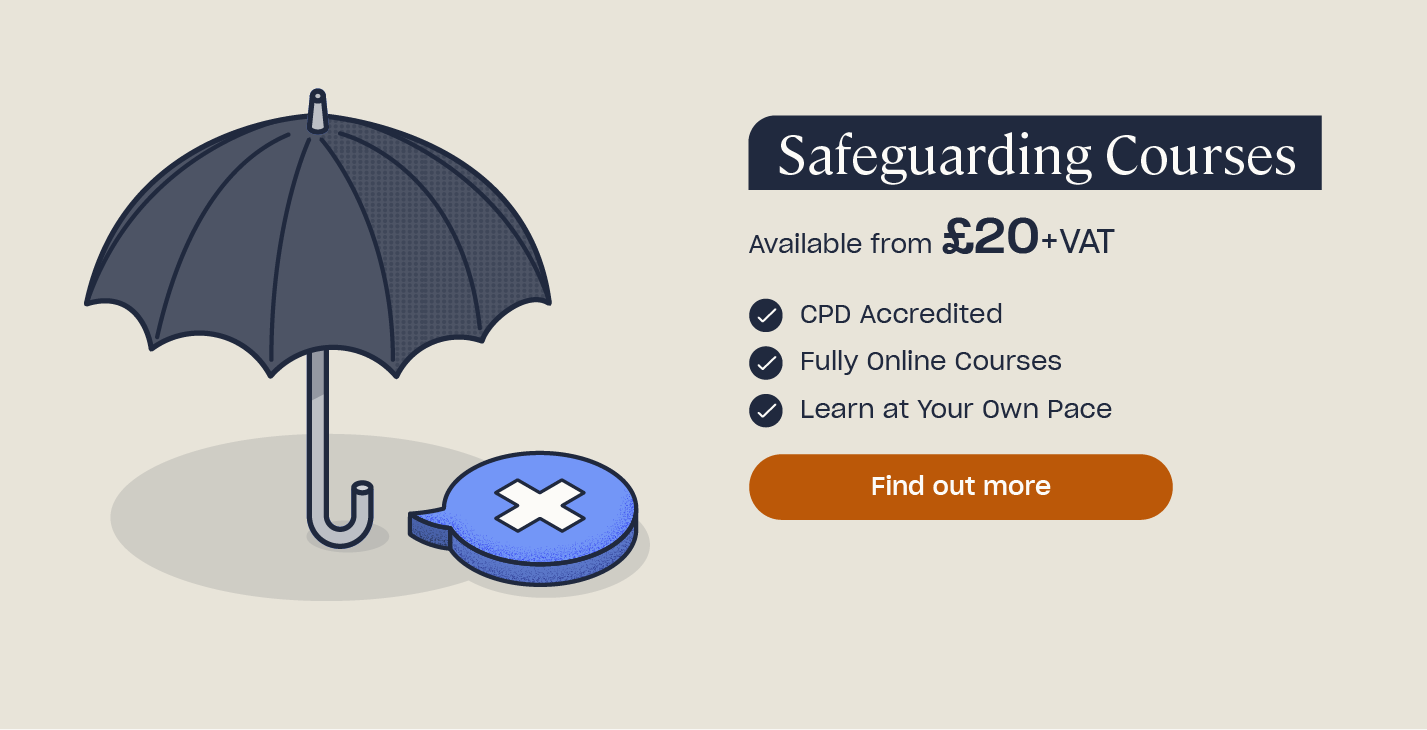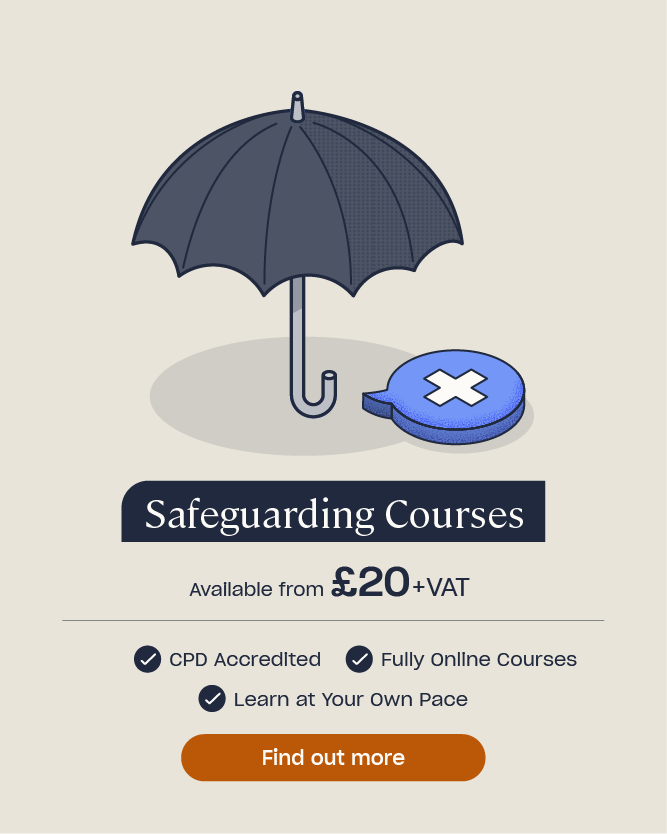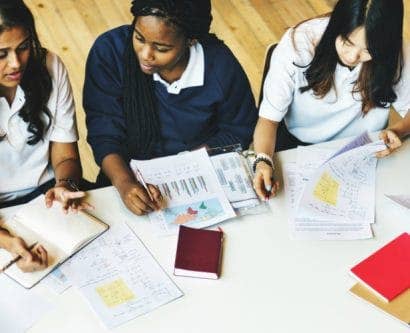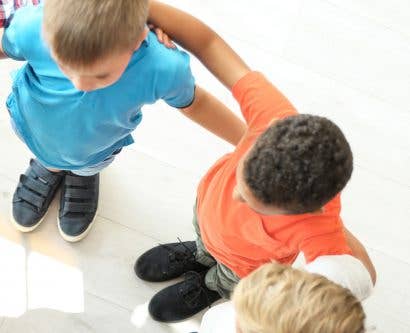Homeschooling Tips from High Speed Training
COVID-19 has completely changed society and life as we know it. Weekends are filled with plans that we can do within our own four walls, the majority of the UK workforce are now working from home, and schools are closed except in certain circumstances, meaning that most children are now spending all of their time at home.
While physical school buildings might be closed, learning is still expected to continue. As a result, parents up and down the country are trying to help with their children’s education and coming up with innovative ideas to keep their children learning and occupied.
We know that this is no easy task, and trying to ‘homeschool’ your children can lead to frustrations on both sides. What’s more, if you’re working from home, trying to keep your children entertained at the same time as you’re trying to work can prove a difficult balancing act. We spoke to some of our colleagues at High Speed Training and asked just how they’re managing to do it, and if they had any tips that they can share with you.
Some of High Speed Training’s Homeschooling Tips
1. Play to Your Strengths
We all had those subjects at school that we loved and others that we just couldn’t get our heads around. For me it was science and physics in particular – no matter how much I tried, I just could not understand how to calculate kinetic energy. We all have different strengths, and in this situation playing to those strengths is a crucial way of getting through and easing some of the pressure.
Jenny Wells, our HR Manager, has worked out that playing to your strengths when assisting with schoolwork is helping her and her husband to support their two sons’ learning. Jenny admits that she prefers subjects like history, geography and science, but that maths in particular is not something she enjoys, so her husband is on hand to help their two children with the maths work.
2. Learn through Play
Asking your children to complete their homework can be a challenge at the best of times, never mind when we’re in the height of a global pandemic and they’re having to do all of their work at home. One great way of helping to keep them engaged is to focus their learning on the things they enjoy and make learning part of play.
Our PPC Manager, Lee Batchelor, explains how he’s helping to keep his five year old son Daniel entertained by learning about things he loves.
Lee says:
“Daniel loves maths and numbers and he loved a recent activity we played with him. It involved building an indoor den out of bedsheets and chairs, and we then used a tape-measure to work out how big the den was and also to measure some of his toys. We used the measurements to figure out how many of his toys could fit in the den. We also talked about what shape the den was.”
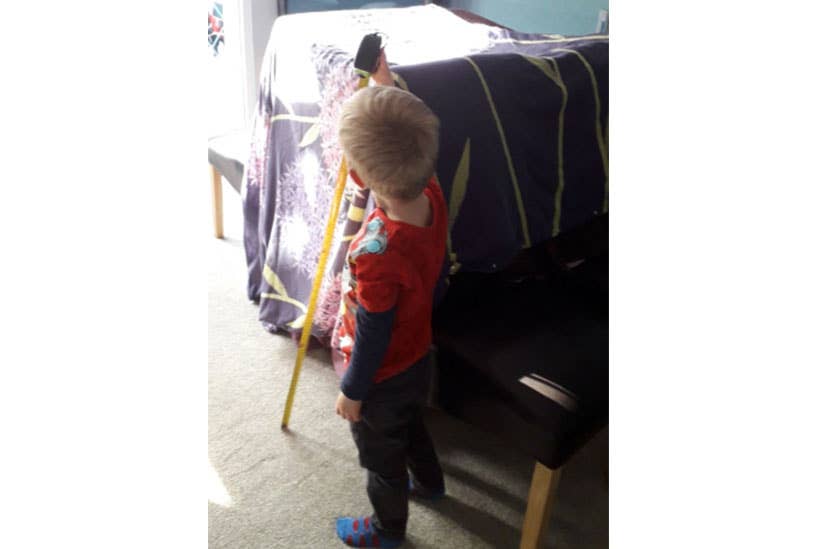
This is a great example of learning through play, as it gets your child to learn and think about numbers, but without sitting at a table and writing in workbooks. Additionally, learning through doing is an effective way of committing new knowledge to long-term memory, meaning that your children will be able to rely on these skills easier in the future.
However, it isn’t only parents from our office who are encouraging learning through play. A former child psychiatrist who is now the Professor of Play at the University of Cambridge, Paul Ramchandani, says that learning at home doesn’t need to look like it does at school, and also that it probably shouldn’t. He says that, during this time, play can come into its own and it can positively affect children’s development. Take this time to play with your children, follow their lead and, perhaps most importantly of all, have fun with them.
3. Use Hidden Learning Techniques
As well as learning through play, there are so many different ways to learn other than reading from textbooks or completing sums. What’s more, if you use different and hidden learning methods, your children probably won’t even realise that they’re learning!
Our Senior Developer and Squad Manager, Kyle Balnave, is using hidden learning methods with his two children, who are three and six years old. Kyle is using games like snakes and ladders to help with counting and scrabble tiles for spelling. Blending games with learning like this is a great way of helping your children learn while also having fun at the same time.
What’s more, one of our Learner Support Consultants, Nikki Waddington, is finding that she can teach her four year old son, Sebastian, by using story books. She says:
“We have also used story time before bed as an opportunity to read interesting books about the weather, different countries, space etc”
Nikki, Learner Support
This is a fantastic way of integrating learning into your child’s daily routine and making it interesting at the same time.
4. Understand Their Frustrations
Being at home, and the complete upheaval of a daily routine, is frustrating for both adults and children. This is a time of massive change for children, and they are likely to be feeling worried and lots of other emotions that they don’t know how to express. On top of this, they will be missing their friends and their extended family, and therefore learning is probably not at the top of their priority list.
If your child is acting up or is getting more and more frustrated at their work, take some time away from it. You’re allowed! As Richard Lubomski, our Head of Creative and Design, sums up:
“It’s okay to not feel like learning something.”
Richard, Head of Creative and Design
5. Get Creative
Millions of parents are currently finding themselves in a situation that they never thought would happen, never mind that they could prepare for. Nobody expects you to have a wealth of educational supplies at home that you can call upon in the eventuality of an unprecedented global pandemic!
Getting creative with your children is a great way to have fun and also help them to learn at the same time. Gathering the felt-tips, locating the glue sticks, and making something can provide hours of fun for your children (and maybe even for yourself, too!).
HST’s Head of Content Production, Richard Anderson, has found a fantastic way to keep his Postman Pat loving daughter, Isobel, entertained. Using an old shoebox, printing some red paper, and designing a sign, Richard has created his very own version of Greendale’s postbox. Isobel appears to be loving it and is posting letters, the TV remote, and even sets of keys in there!
Isobel’s Homemade Postbox
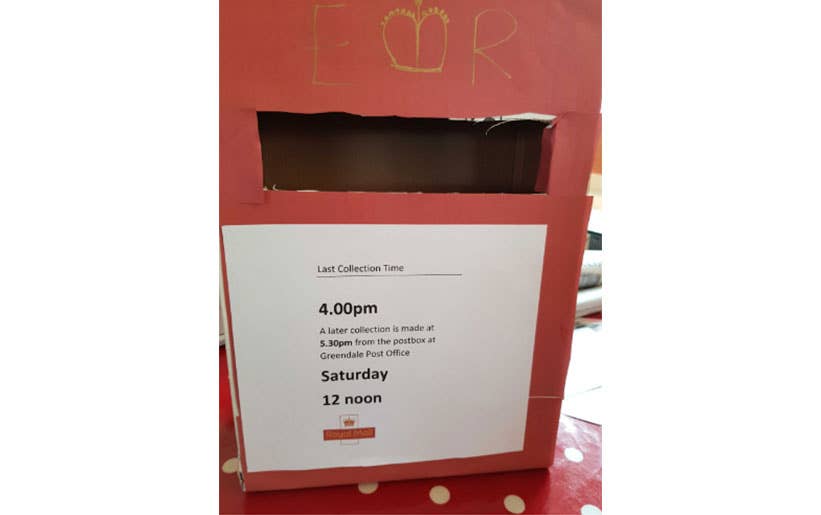
As well as building dens, PPC Manager Lee has also been trying to do some creative activities with his son, Daniel.
As Lee says:
“We’ve tried to do some creative activities using Play-Doh to make some of the characters or depict some of the story from Daniel’s favourite books, like the Gruffalo and the Very Hungry Caterpillar.”
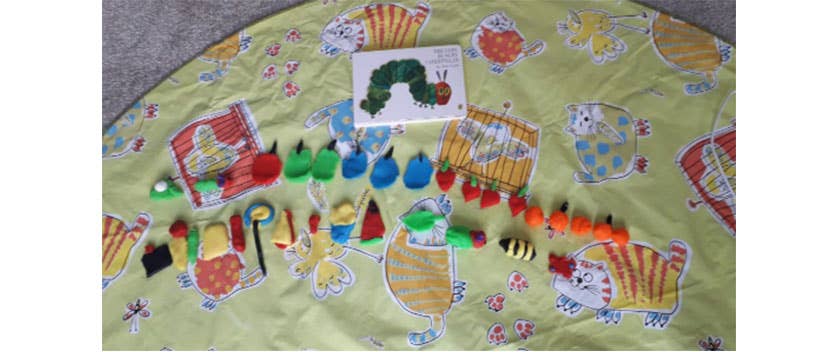
6. Improvise with What You Have
While getting creative is a good thing to do, not everyone has lots and lots of creative supplies in the house. If this is the case for you, rather than making a special trip to the shops to get some, improvise with what you have available already.
One of our Learner Support Consultants, Kaz Murray, has found a fun way to get creative based on supplies she has in the kitchen. Not only is it helping her six year old son, Mickey, with his counting, but it’s also helping to keep him entertained.
Kaz says:
“One thing I have done is created my own little pick and mix bags and priced some treats up. I give Mickey £1 in change every day and he has to buy his treats and work out what he needs to pay.”
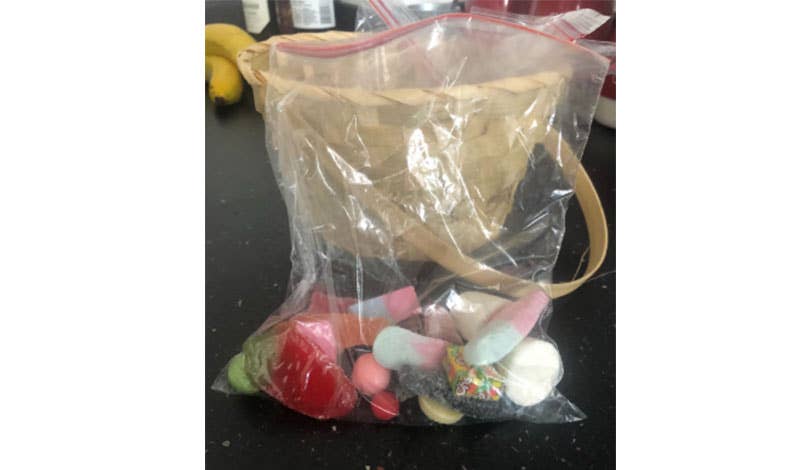
7. Try to Stick to a Routine
Routine feels like a bit of an odd word at the moment. Our routines have been completely turned on their heads and we’ve had to find new ways to adapt, and quickly! However, while routine may feel like a bit of a buzzword right now, there’s actually a range of benefits that can be had from trying to establish one.
Having a routine, however basic it is, is a way of providing stability in a currently very unstable and uncertain world. It can bring comfort to your children and bring about a bit of a sense of normality. You don’t have to fill in a rigid timetable and stick to it every single day: even deciding to wake up and go to bed at the same time every day is a routine.
Both Jenny and Richard have agreed that sticking to somewhat of a routine is beneficial at this time. Richard is sticking to a school routine, taking regular breaks and swapping out subjects in the morning, just as his daughter would if she was still at school. Jenny, on the other hand, is committing to doing exercise in the mornings, commenting that:
“We sussed out fairly early on that if we do some form of exercise, first thing before school work, with the kids, then the day runs a lot smoother.”
Jenny, HR Manager
8. Learn Some Life Skills
Learning doesn’t always have to be academic; it can take many forms and learning is something that we can do in everyday life. Nobody is expecting you to completely cover the school curriculum at home during this period, nor are they expecting you to turn into your child’s teacher. Use this opportunity to spend some time with your children and learn some valuable life skills and lessons, as our Learner Support Consultant Nikki did with her son.
Nikki says:
“I think it’s really key for parents to remember that educational learning is very important but so is having fun and having different experiences. One thing we have done is teach Sebastian to ride his bike, learn to get himself dressed and undressed, and put clothes in the wash. These are general skills that will be useful for him.”
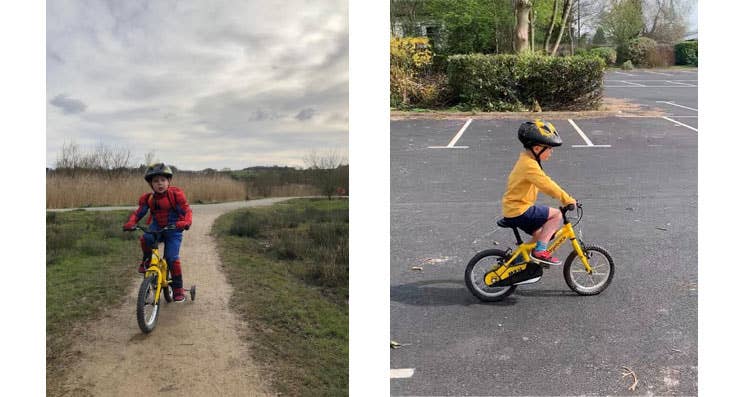
Many parents of our High Speed Training family are doing similar with their children, with cooking, baking, painting, and even gardening making an appearance in the school day!
9. Use Online Resources
There are some great online resources available out there, with quite a few of our staff members using them to help their children learn, especially while they’re working.
Websites like BBC Bitesize Daily Lessons and Twinkl are providing exceptional resources to help with children’s education during this time. Additionally, the Department for Education has compiled a comprehensive list of online resources that can be used during the coronavirus outbreak, which are grouped by subject as well as age group.
Finally, there are hundreds of useful resources you can find online, and there are even online communities, like Facebook groups, where people are sharing tips and activities that they’ve used with their children.
10. Look for the Silver Linings
While it can be hard to look on the bright side at the moment, and even harder to try and think positively in the face of what is going on, there are some things that we can still be thankful for.
Whether it’s spending more time with your children, taking up a new hobby, or having more free time on your hands, there are some silver linings that can be found during this time. When you next feel overwhelmed, try to look for the positives that can be found in your current situation.
“We [Kaz and her son] can actually enjoy quality time together instead of rushing to school and then to work! I’ve learnt that focusing on the silver linings of things makes a huge difference!”
Kaz, Learner Support
And Finally, Be Kind to Yourself!
Something that really came out of me speaking to people was the feeling of pressure that accompanied children being at home all day and the expectation to teach them. There was a great sense of being overwhelmed, especially when the work came flooding in. Juggling childcare with work commitments is hard enough, but when you’ve got homeschooling thrown in there too, it can feel impossible. If you feel like this, remember that you’re not alone.
It’s important to appreciate that you are not a teacher and you are not expected to completely replicate the classroom environment, and teach the entire curriculum, at home. Learning can take many different forms: whether it’s gardening, building dens, or making postboxes from shoeboxes, it’s all learning and it’s all important.
So ease some of the pressure off, cut yourself some slack, and be kind to yourself. You’re doing the best you can.
What to Read Next:
- Parents’ Guide to Instagram
- Parents’ Guide to TikTok
- Environmental Awareness Activities and Downloads
- How to Begin Homeschooling: Guidance & Requirements
- The Homeschooling Debate: Advantages & Disadvantages


